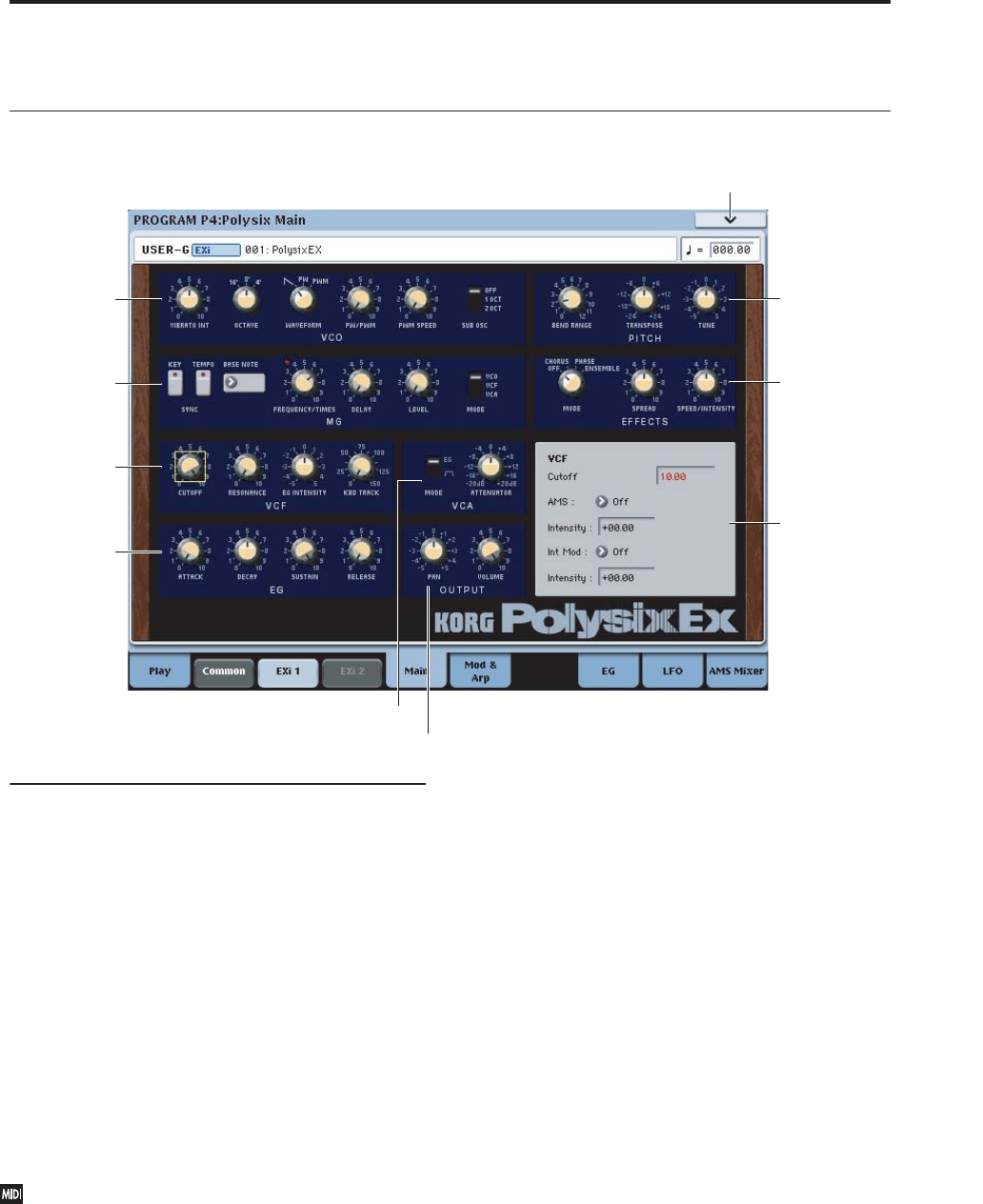
Program P4: Main 4-1: Main
311
Program P4: Main
4-1: Main
4-1a: VCO
VIBRATO INT [0.00...10.00]
Moving the joystick “up” from the center detent
position, away from yourself, produces the JS+Y
controller (MIDI CC#1). On the PolysixEX, JS+Y
normally controls VIBRATO–the amount of the MG
applied to VCO pitch.
VIBRATO INT controls the intensity of this
modulation, up to +/- 2 semitones. To disable JS+Y’s
control of VIBRATO, set this to 0.00.
Note that this is optimized for fairly small amounts of
pitch modulation. For more dramatic effects, set the
MG’s MODE to VCO, and adjust the depth via the
MG’s LEVEL knob.
Alternatively, you can modulate TRANSPOSE or
TUNE via AMS.
VIBRATO INT is scaled by MIDI CC#77.
OCTAVE [16', 8', 4']
This sets the VCO’s coarse tuning, in octaves.
WAVEFORM [SAW, PW, PWM]
This selects the VCO’s waveform.
SAW produces a sawtooth wave–the traditional buzzy
analog synth sound.
PW produces square and pulse waveforms; for more
information, see “PW/PWM,” below.
PWM is similar to PW, but uses a dedicated LFO to
modulate the waveform. The speed of the LFO is
controlled by “PWM SPEED,” below. The PW/PWM
setting determines the maximum width.
PW/PWM [0.00...10.00]
When WAVEFORM is set to PW, this directly controls
the shape of the waveform.
When WAVEFORM is set to PWM, this controls the
maximum pulse width when being modulated by the
dedicated PWM LFO. When PW/PWM is set to 0.00,
the LFO will have no effect.
More on Pulse Width
Pulse waveforms are simple, rectangular shapes. The
Pulse Width sets the percentage of the waveform spent
in the “up” position. A few examples are shown in the
diagram below. Note that a square wave is just a pulse
wave with PW/PWM set to 0.00.
The width controls the timbre of the oscillator, from
pure and hollow at 0.00 (a square wave) to thin and
reedy at higher settings.
At the maximum setting of 10.00, the Pulse wave will
be very quiet, since the “pulse” goes up and then down
again almost instantly.
The real magic of the pulse wave comes when you
modulate the width, using either AMS or the dedicated
PWM LFO. With AMS, try using a medium-speed
triangle LFO, or a sweeping EG.
4–1a
4–1c
4–1b
4–1d
4–1e
4–1f
4–1g
4–1h
4–1i
4–1PMC


















